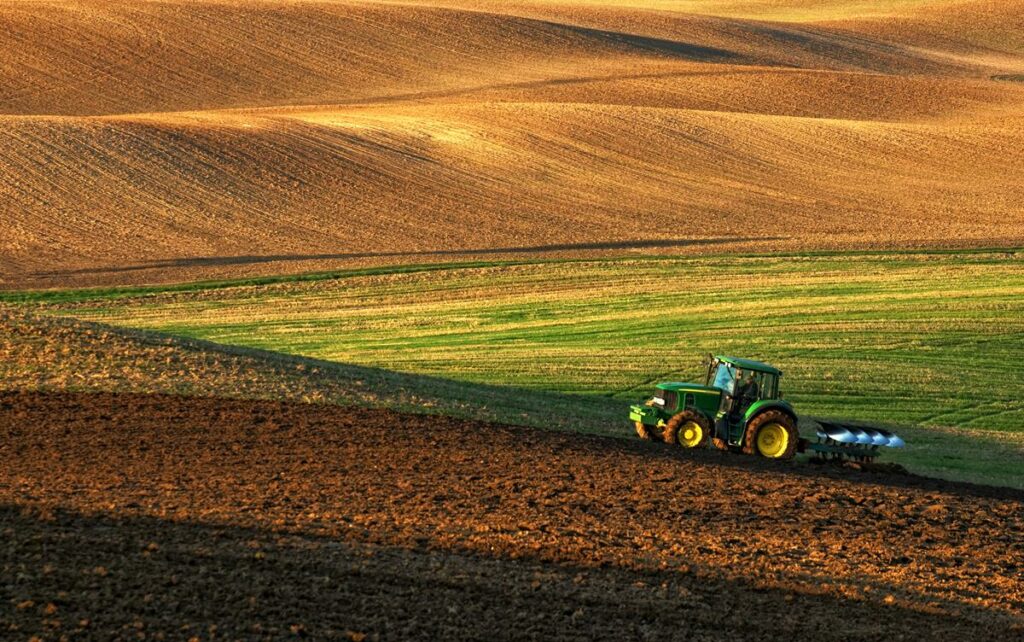To help farmers with the current cashflow difficulties they are facing, the Minister for Agriculture, Michael Creed, announced a low-cost loan scheme as part of Budget 2017.
Under the scheme, called the Agri Cashflow Support Loan Scheme, a total of €150m will be available to farmers at low-cost interest rates of 2.95%.
The Minister is encouraging farmers to consider their cash flow and borrowings situation now, and if appropriate, to be prepared to apply for these loans when they become available on a first-come, first-served basis.
If you’re thinking of applying for a loan, the Department of Agriculture has compiled a questions and answers list with more information on the loans:
What are these loans for?
This is a cashflow support facility to improve the working capital position of viable primary agriculture SMEs, including farmers.
The loans are primarily to pay down expensive forms of credit such as merchant credit and other short-term financing facilities.
What can the loans be used for?
The purposes for which the loans may be used include:
- Working capital requirements.
- As a more sustainable alternative to short-term credit facilities.
- As an alternative to merchant credit.
What cannot the loans be used for?
The loans under the scheme cannot be used for any of the following:
- Refinance of existing term loans.
- The refinance of undertakings in financial difficulties (as opposed to cashflow difficulties; this is defined in EU guidelines.)
- New investments.
However, by improving the cashflow position of their business through use of this facility, many farmers will be in a better position to negotiate and restructure existing loan commitments.
Who will these loans be available from?
Following the SBCI ‘open call’, it will select the participating financial institutions, “that are duly authorised to carry out lending activities, according to the applicable legislation, operating in Ireland and lending to the agricultural sector for a minimum of five years”.
When will these loans be available?
It is hoped that loans will be available through the participating financial institutions early in 2017.
The Minister for Agriculture has spoken to the main banks and urged them to participate. The loans will need to be allocated by late summer 2017 to comply with the requirements attaching to the EU funding.
Who can apply?
The loans will be available to all livestock farmers, tillage farmers, horticulture producers and others involved in primary agricultural production.
To satisfy the requirements of the EU aid package, applicants will also need to satisfy certain eligibility criteria.
Loans to non-livestock farmers will be subject to de minimis State Aid requirements, the Department has said.
Eligibility for the loans
According to the SBCI, the applicant must satisfy one of the following conditions in order to be eligible for the scheme, by way of self-declaration:
1. Is applying environmental and climate friendly production methods:
Is participating in an agri-environment schemes as part of Ireland’s current or last Rural Development Programme (i.e. GLAS, BDGP, AEOS, REPS, Organic Farming Scheme or a locally-led EU agri-environmental scheme)
2. Is implementing quality schemes or projects aiming at promoting quality and value added:
- Is a certified member of a Bord Bia Quality Assurance Scheme; or
- Is a certified member of a Quality Assurance Scheme run by a co-operative, processor or producer representative body.
3. Is implementing co-operation projects:
- Is a member of a Department of Agriculture-registered Farm Partnership.
4. Is training in financial instruments and risk management tools
- Has successfully completed or am participating in the Department’s Knowledge Transfer Programme or previous programmes such as BTAP and STAP (and specifically, the financial management elements of those programmes); or
- Has participated in financial training given by Teagasc (including the Cashflow module included in recent farm walks), and can produce a certificate to this effect; or
- Has participated in financial training from another body (e.g. co-operative, processor, farming organisation, producer representative body or other providers of training) relating to the eligible agricultural sectors, and can produce a certificate to this effect.
Farms will not qualify for the loan scheme if the farm is:
- In financial difficulty (excluding short-term cashflow pressures caused by the current market conditions).
- Is bankrupt or being wound up or having its affairs administered by the courts.
- In the last five years has entered into an arrangement with creditors, in the context of being bankrupt or wound-up or having its affairs administered by the courts.
- Convicted of an offence concerning professional conduct by judgement, fraud, corruption, involvement in a criminal organisation, money laundering or any other illegal activity where such illegal activity is detrimental to the European Union’s financial interests.
What size are the loans and what is the interest rate and terms?
The loans will be for amounts up to €150,000 for up to six years. The interest rate at 2.95% will represent a significant saving for farmers when compared with other forms of finance currently available.
The loans will be flexible with interest only facilities of up to three years.
Normal lending assessment criteria will apply although the loans will be ‘unsecured’ in nature, thereby facilitating a more straightforward application process.
How much is available and where is the money coming from?
It is planned that a total of €150m in funding will be available under the loan scheme.
The Department of Agriculture will be contributing €25m in total. This figure includes €11.1m from the EU’s ‘exceptional adjustment aid for milk and other livestock farmers’ and €14m in national funding.
The SBCI uses the €25m to leverage the fund. SBCI with COSME (the EU programme for the Competitiveness of Enterprises and SMEs) is providing the guarantees required to underpin the loan’s flexibility, and lower the cost of the loans.


